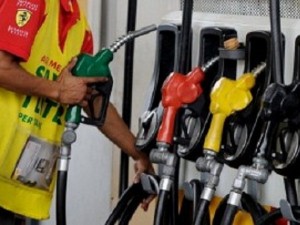Oil firms to roll back prices anew
MANILA, Philippines—The oil companies are rolling back fuel prices again as the international oil market remains weak.
Although they issued their announcements separately, Shell, Chevron (which retails the Caltex brand), and Seaoil said they were cutting their prices at identical rates effective 12:01 a.m. Tuesday, Nov. 18 — P0.80 per liter for gasoline, P0.50 per liter for diesel, and P0.35 per liter for kerosene.
PTT Philippines and Phoenix Petroleum, which do not sell kerosene, announced separately that they were cutting prices of gasoline by P0.80 per liter and diesel by P0.50. But while PTT was implementing its price cuts one stroke after midnight Monday, Phoenix Petroleum was to cut is prices at 6 a.m. Tuesday.
The companies said the price cuts reflect the continued softening in the prices of refined petroleum products in the world market.
Other oil companies have not announced price adjustments but were expected to implement similar changes since most of the fuel sold in the Philippines is imported, making the country’s oil players vulnerable to the same set of outside factors such as international oil prices and foreign exchange rates.
According to data from the Department of Energy’s weekly “Oil Monitor” report, the year-to-date total adjustment for gasoline and diesel stands at a net decrease of P7.34 per liter and P8.48 per liter, respectively.
Last Friday, the benchmark Dubai crude hit $77 per barrel, which is among the lowest price levels this year compared to $100 and above
around the end of 2013.
Analysts say that low oil prices will likely be the “new normal” over the next two years or more as oil exporting countries don’t seem inclined to defend the $100-per-barrel price of crude oil through production cuts.
Prices are seen to languish around the $80 per barrel level and by next year there is a possibility of hitting $50 per barrel, industry sources said.
Energy Secretary Carlos Jericho l. Petilla said this is generally good for fuel importers such as the Philippines, which have no influence at all on prices and thus are more likely to benefit from price cuts.


